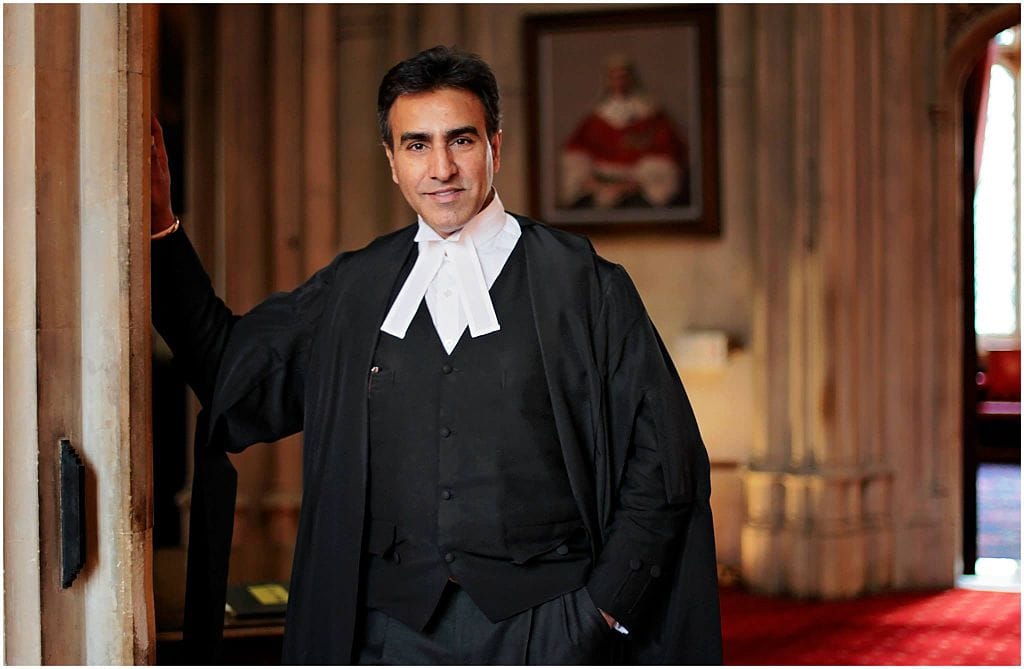Disbarred QC Jo Sidhu accused of abusing power over aspiring women in explosive MeToo reckoning
The legal profession is reeling after shocking claims surfaced against one of its most high-profile figures. Disgraced barrister Jo Sidhu, once a candidate for the role of Director of Public Prosecutions, has been disbarred following serious sexual misconduct allegations—and calls are now growing for a full-scale MeToo reckoning at the Bar.
Three women have come forward to accuse Sidhu of “predatory” behaviour, alleging a pattern of inappropriate conduct and abuse of power over aspiring young female lawyers. Their harrowing accounts, aired by Channel 4 News, reveal a toxic culture of silence and missed accountability.
The most serious allegation comes from “Sienna” (a pseudonym), who says she was offered a shadowing opportunity with Sidhu during a murder trial. What began as a promising professional mentorship turned into a nightmare when, on the very first night, Sidhu allegedly locked her in his hotel room, got on top of her, and began kissing and undressing her.
Embed from Getty Images“I kept saying I wanted to leave. The door was locked. The lights were off. I ended up on the bed,” she told Channel 4, her voice shaking. “He touched my private parts. He was trying to persuade me to stay. I was terrified.”
Sidhu, who is 28 years older than Sienna, held influential positions including chair of both the Criminal Bar Association and the Society of Asian Lawyers. That power, she said, made it feel impossible to speak out at the time.
Only Sienna’s complaint led to his disbarment. Allegations from two other women were dismissed—but not without raising deep concerns about the Bar Standards Board’s (BSB) handling of such complaints.
One of the other women, Anneka Jenns, described being texted late at night by Sidhu after they met at a networking event. “He said he’d like to see me twerk,” she recalled. “I was shocked. I’d sent him my CV. I thought this was a professional relationship.”
Baroness Harriet Harman’s forthcoming review—commissioned by the Bar Council and seen in draft form by Channel 4—brands Sidhu’s behaviour as “predatory” and an “open secret” within legal circles. Senior barristers reportedly warned junior women to “stay away from him”.
But the report goes further, exposing a culture where such misconduct is tolerated, hidden, or downplayed. One woman said a barrister offered to pay her Bar course fees in return for sex. Another said a male colleague slid his hand under her dress—three times—during a professional event.
Baroness Harman condemned widespread misogyny in the profession and criticised the BSB’s response, noting the regulator took more than two years to process the Sidhu complaints. “Significant failings” were cited in how the cases were handled, leaving victims retraumatised and disillusioned.
Sienna echoed this sentiment: “From start to finish, the process was appalling. It’s been traumatic on top of what already happened. At one point, I almost pulled out completely.”
A lawyer for Sidhu confirmed he intends to appeal the disbarment and rejected Channel 4’s description of the Harman report, stating: “The Tribunal previously rejected the suggestion Mr Sidhu was ‘predatory’. We’ve not seen the review and cannot comment on selective extracts.”
The BSB said it is “actively exploring” better support for harassment victims and acknowledged the urgent need for cultural change. “We take allegations of sexual harassment seriously,” a spokesperson said. “Timeliness is key to public trust, and we’re reviewing how we meet those expectations.”
For the women who bravely spoke out, the hope is clear: that this becomes a true turning point for the legal profession, much like the MeToo reckonings that shook the media, parliament, and police.
